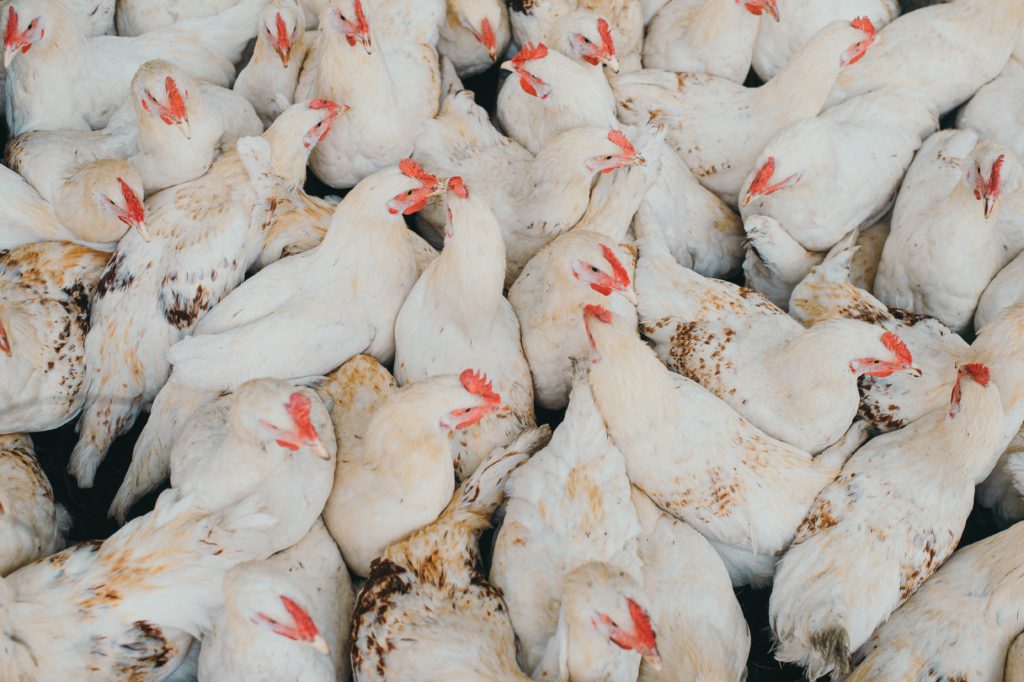Dynamic Foodco Sets Its Sights On Solving Singapore’s Food Security Concerns With Plant-Based Chicken
4 Mins Read
Singaporean food tech startup Dynamic Foodco intends to help secure domestic food security and it says it can start doing so by the end of 2022 when it plans to launch its Dynameat brand, with a focus on plant-based chicken initially. The debut will be supported by a recent seed funding round. The amount raised remains undisclosed but is earmarked for team build-out, improved R&D capabilities, and construction of a commercial production facility.
The startup cites Asian hesitancy towards plant-based meat as a motivating factor when developing its Dynameat brand. As a result, products have been created with Asian taste preferences in mind, as opposed to catering to conventional Western proclivities. Eastern palates and cost-efficiency have been central to the meat alternatives that are now close to launching.

A solution to Singapore’s food security concerns?
Dynameat is being suggested as a meaningful contributor to Singapore’s 30 by 30 initiative. The project seeks to ensure that at least 30 percent of all food is domestically made, by 2030, to lessen reliance on unreliable imports. This issue has become more pertinent in light of a Malaysian chicken export ban that has seen Singaporean diners worry about their poultry supplies.
Malaysia currently provides one-third of Singapore’s poultry imports. The country is set to block the exporting of more than 3.6 million chickens a month, to stabilise domestic supply and stem inflation. Singapore is expected to experience shortages and price hikes. Dynameat is being portrayed as a future solution to such issues, by maintaining domestic production of realistic chicken analogues.
“With Dynameat, we want to offer a plant-based meat alternative that is delicious, nutritious, affordable, scalable and less susceptible to supply chain shocks like the recent Malaysian chicken export ban,” Dr. Andy Kusumo, founder and CEO of
Dynamic Foodco said in a statement. “Dynamic Foodco will be leveraging technology to address not only the short-term chicken shortage but also Singapore’s long-term food security needs.”

Developed by meat lovers for meat lovers
Kusumo considers himself an enjoyer of conventional meat but notes that current consumption and production levels are unsustainable. In a statement seen by Green Queen, he acknowledges that Asian consumption of meat and seafood is expected to increase by 78 percent by 2050.
“We need to address it now with the next-generation of plant-based meat alternatives that cater to tastebuds first,” he said.
Dynameat has been developed with Singapore’s chicken-rice aficionados in mind, though nothing has been confirmed as to the composition of the plant-based meat. The startup references its TnT (taste and texture) technology being able to convert “ordinary plant ingredients” into sustainable food solutions but does not divulge more. A move into mycoprotein is a reasonable prediction, however. Kusumo was previously the first scientist and R&D head for Quorn, Asia. Future interests in fermentation have been cited by Dynamic Foodco, laying the groundwork for potential fungi-based developments.

Seeing Singapore through a chicken shortage
Dynameat will not be alone in its mission to fill the dietary gap left by poultry shortages in Singapore. In April, Hoshay Food announced it had released a range of plant-based meals designed to cater to regional tastes. Amongst the dishes is a crispy fried chicken dish. The entire range is claimed to be sustainable and healthier than its conventional meat counterparts.
In March, Indonesia’s Green Rebel revealed it has officially moved into the Singapore market with its beef, pork and chicken alternatives. The brand, known for defining itself as being made by Asians, for Asians, has partnered with multiple restaurants across the country, each using the products in local favourite dishes. Chicken satay and beef rendang are amongst the items confirmed.
Lead photo by Dynameat.




